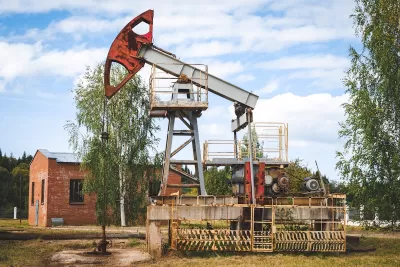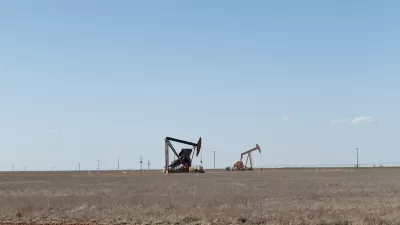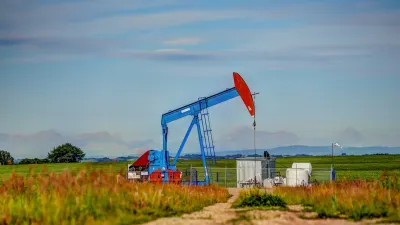Researchers are using artificial intelligence, drones, and sensors to locate and assess undocumented orphaned oil and gas wells, addressing their environmental and climate risks by identifying high-priority sites for plugging and methane mitigation.

Undocumented orphaned oil and gas wells scattered across the United States pose significant environmental and climate risks, with potential leaks contaminating air, water, and emitting methane, a potent greenhouse gas. Leveraging artificial intelligence (AI), researchers are analyzing historical topographic maps to identify these hidden wells, combining this data with modern tools like drones, sensors, and magnetometers to locate and assess the sites. The AI technology, trained to recognize symbols denoting wells on old maps, has already pinpointed thousands of potential undocumented wells, which are then verified through satellite imagery and fieldwork.
The research is part of the Consortium Advancing Technology for Assessment of Lost Oil & Gas Wells (CATALOG), a collaborative effort among national labs to address the growing issue of orphan wells. Once discovered, these wells are assessed for methane emissions using both high-tech and low-cost sensors to prioritize the most hazardous sites for plugging. This approach not only curbs greenhouse gas emissions but also prevents contaminants like benzene and hydrogen sulfide from endangering nearby ecosystems and communities.
Innovative field tools, such as drones equipped with methane sensors and magnetometers, allow researchers to survey large areas more efficiently than on foot. These technologies are paired with traditional mapping techniques to create a multi-layered approach for uncovering wells. The combination of historical data and cutting-edge equipment ensures even wells buried under decades of development or natural regrowth can be identified and addressed.
Through partnerships with stakeholders like Native American tribes and federal agencies, CATALOG’s efforts aim to scale these methods nationwide. By integrating diverse datasets and tools, the project seeks to minimize environmental harm from orphan wells, reducing methane emissions and protecting communities from the legacy of early oil and gas exploration.
FULL STORY: AI Helps Researchers Dig Through Old Maps to Find Lost Oil and Gas Wells

Trump Administration Could Effectively End Housing Voucher Program
Federal officials are eyeing major cuts to the Section 8 program that helps millions of low-income households pay rent.

Planetizen Federal Action Tracker
A weekly monitor of how Trump’s orders and actions are impacting planners and planning in America.

Ken Jennings Launches Transit Web Series
The Jeopardy champ wants you to ride public transit.

Washington Legislature Passes Rent Increase Cap
A bill that caps rent increases at 7 percent plus inflation is headed to the governor’s desk.

From Planning to Action: How LA County Is Rethinking Climate Resilience
Chief Sustainability Officer Rita Kampalath outlines the County’s shift from planning to implementation in its climate resilience efforts, emphasizing cross-departmental coordination, updated recovery strategies, and the need for flexible funding.

New Mexico Aging Department Commits to Helping Seniors Age ‘In Place’ and ‘Autonomously’ in New Draft Plan
As New Mexico’s population of seniors continues to grow, the state’s aging department is proposing expanded initiatives to help seniors maintain their autonomy while also supporting family caregivers.
Urban Design for Planners 1: Software Tools
This six-course series explores essential urban design concepts using open source software and equips planners with the tools they need to participate fully in the urban design process.
Planning for Universal Design
Learn the tools for implementing Universal Design in planning regulations.
Heyer Gruel & Associates PA
Ada County Highway District
Institute for Housing and Urban Development Studies (IHS)
City of Grandview
Harvard GSD Executive Education
Toledo-Lucas County Plan Commissions
Salt Lake City
NYU Wagner Graduate School of Public Service





























